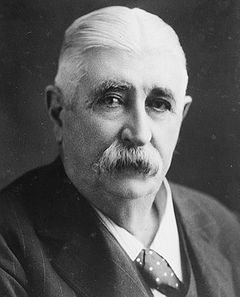Ralph Champneys Williams
|
Sir Ralph Champneys Williams CMG |
|
|---|---|
 |
|
|
|
|
|
In office 1909–1913 |
|
| Monarch |
Edward VII George V |
| Preceded by | Sir William MacGregor |
| Succeeded by | Sir Walter Edward Davidson |
| Governor of the Windward Islands | |
|
In office 1906–1909 |
|
| Monarch | Edward VII |
| Preceded by | Sir Robert Baxter Llewelyn |
| Succeeded by | Sir James Hayes Sadler |
| Resident Commissioner in Bechuanaland | |
|
In office January 1901 – 1906 |
|
| Monarch |
Victoria Edward VII |
| Governor |
The Lord Milner The Earl of Selborne |
| Preceded by | Sir Hamilton Goold-Adams |
| Succeeded by | Francis William Panzera |
| Personal details | |
| Born | 9 March 1848 Holyhead, Anglesey United Kingdom |
| Died | 22 June 1927 (aged 79) London, United Kingdom |
| Nationality | British |
Sir Ralph Champneys Williams CMG (9 March 1848 – 22 June 1927) was a British colonial governor.
Williams was educated at The King's School, Chester, and at Rossall School. He joined the colonial service in 1884 and his first post was to Bechuanaland. He then served at Pretoria, South Africa, Gibraltar and Barbados, for which he was appointed a Companion of the Order of St Michael and St George (CMG) in the 1901 New Year Honours List. In early 1901 he returned to Bechuanaland as Resident Commissioner at the height of the Second Boer War. Williams was governor of the Windward Islands prior to his appointment as governor of Newfoundland in 1909.
While governor of Newfoundland Williams travelled throughout the island and the coast of Labrador. He was opposed to confederation with Canada and desired to maintain Newfoundland's individuality and hold fast Britain's last tie to North America. In 1913 he published his memoirs, How I Became a Governor.
Two Newfoundland towns were renamed for him: Salmon Cove, Trinity Bay, became Champneys, and Greenspond, White Bay, became Williamsport.
...
Wikipedia
